
Advantages of Prebiotics: How Can They Benefit You?
These foods help your gut bacteria, which are good for your health. They support your immune system and may help you manage your weight. Eating a variety of fibers is good for gut health and overall well-being.
How Prebiotics Impact Gut Health: Advantages of Prebiotics
| Key Benefits | Description |
|---|---|
| Gut Fermentation | Leads to the production of short-chain fatty acids, essential for colon health. |
| Regulation of Bowel Movements | It prevents constipation, ensues regularity, and improves nutrient absorption. |
| Immune Function | Strengthens the immune system and reduces systemic inflammation. |
Prebiotics Benefits
In recent years, prebiotics have gained notable recognition for their health benefits. They significantly enhance digestion and nutrient absorption, which are vital for optimal gut health and overall metabolism.
Enhanced Digestion
Studies have demonstrated the advantages of prebiotics in boosting beneficial bacteria in our gut. This is crucial for excellent metabolic health. Improved nutrient absorption means our body can utilize vitamins and minerals more effectively, enhancing overall health and wellness.

Metabolic Health
Prebiotics also offer advantages for reducing the risk of heart disease. They can lower blood lipid levels, which is crucial for cardiovascular health and heart disease prevention.
Immune System Support
Additionally, the advantages of prebiotics extend to our immune system. They help protect against harmful pathogens and support a strong gut barrier. This protection reduces inflammation and helps control stress hormones, contributing to a more stable internal environment for the body.
Here’s more on the benefits of prebiotics:
- Enhanced Digestion: Prebiotics support the growth of beneficial gut bacteria, leading to better food breakdown and improved digestion.
- Nutrient Absorption: They ensure the body effectively absorbs essential vitamins and minerals.
- Metabolic Health: Prebiotics aid metabolism by supporting good bacteria, reducing insulin resistance, and enhancing metabolic health.
- Cardiovascular Disease Prevention: They help lower blood lipid levels, which can reduce the risk of heart disease.
The data confirms that prebiotics’ advantages are crucial for maintaining good health. Incorporating prebiotics into our diet is a smart choice for overall well-being and health improvement.
| Prebiotic Benefit | Description |
|---|---|
| Enhanced Digestion | Boosts good gut bacteria for efficient nutrient breakdown. |
| Nutrient Absorption | It enhances the body’s capability to absorb necessary nutrients from food. |
| Metabolic Health | Supports healthy metabolism by managing blood sugar and reducing insulin resistance. |
| Cardiovascular Disease Prevention | Lowers cholesterol and blood lipid levels for heart health. |
Research shows that prebiotics are helpful and vital for our health. Eating more prebiotic-rich foods is an excellent way to boost health.
FAQ
Q: What are prebiotics, and how do they benefit gut health?
A: Prebiotics are unique plant fibers that, notably, avoid digestion and ferment in the colon. As a result, they boost the growth of good bacteria. Consequently, this process improves gut health by aiding digestion, supporting metabolism, and strengthening the immune system. For example, whole grains, bananas, onions, and artichokes are rich in prebiotics.
Q: What are prebiotics?
A: Prebiotics are fibers that ferment in the colon, feeding healthy gut bacteria. They keep the gut balanced and aid digestion.
Q: What is the difference between prebiotics and probiotics?
A: Prebiotics are fibers that feed the good bacteria in the gut. On the other hand, probiotics are live-beneficial microbes found in fermented foods and supplements. They add to the gut’s healthy bacteria. Both are crucial for a healthy gut and wellness.
Q: What are some familiar sources of prebiotics in foods?
A: Foods like legumes, oats, bananas, onions, garlic, and artichokes are packed with prebiotics. These foods have fermentable fibers that help good bacteria in the gut.
Q: How do prebiotics impact gut health through fermentation and short-chain fatty acid production?
A: Prebiotics ferment in the colon and make short-chain fatty acids. These acids are critical for a healthy colon and immune system and for reducing inflammation. They energize colon cells and offer various health benefits.
Q: How do prebiotics help regulate bowel movements?
A: Prebiotics boost beneficial bacteria. These bacteria create short-chain fatty acids, keeping the colon healthy and working well. This leads to better digestive health and consistency.
Q: What impact do prebiotics have on immune function and inflammation?
A: By fermenting, prebiotics create short-chain fatty acids. These acids boost the immune system and help control inflammation. This could reduce the chance of chronic inflammation-related diseases.
Q: What are the benefits of incorporating prebiotics into my diet?
A: Adding prebiotics to your diet boosts digestion, nutrient intake, and metabolic health. By keeping the gut healthy, prebiotics can protect against heart disease and reduce colon cancer risks.
Q: Which foods are high in inulin and beneficial for gut health?
A: Garlic and asparagus, rich in inulin, are great for the gut. Inulin helps with feeling full, managing cholesterol, and balancing gut bacteria.
Q: What are resistant starches, and how do they support gut health?
A: Resistant starches in oats and legumes bypass digestion in the small intestine. They ferment and produce butyrate in the colon, boosting immunity and fighting inflammation.
Q: Which fruits are rich in pectin, and what are their benefits?
A: Apples and berries have lots of pectin. Pectin fights tumors and helps the gut by fostering good bacteria.
Source Links
General Overview of Prebiotics
- What Are Prebiotics and What Do They Do?
- What Are Prebiotics?
- What Are Prebiotics? Prebiotics Benefits, Foods, and Downsides
- Eight benefits of prebiotic
Scientific Insights on Prebiotics
- Prebiotics: Definition, Types, Sources, Mechanisms, and Clinical Applications
- An Updated Review on Prebiotics: Insights on Potentials of Food Seeds Waste as Source of Potential Prebiotics
- Fiber and Prebiotics: Mechanisms and Health Benefits
Comparisons with Probiotics
- Probiotics and Prebiotics: What’s the Difference?
- Prebiotics or probiotics: Which one should you take?
- What Are Probiotics & What Do They Do?
- What are prebiotics and probiotics, and are they important for health?
Food Sources and Dietary Tips for Prebiotics
- What are prebiotics and probiotics, and what foods contain them?
- 16 Great Foods for Prebiotics
- The 8 Best Prebiotic Foods for Better Gut Health, According to Dietitians
- 19 Prebiotic Foods You Should Eat
Importance of Prebiotics for Health
Jinx Manga
Jinx Manga I very delighted to find this internet site on bing, just what I was searching for as well saved to fav
Belli Health
I am pleased you were able to find my site. Thank you for your feedback.
Blue Techker
Blue Techker Great information shared.. really enjoyed reading this post thank you author for sharing this post .. appreciated
Belli Health
I am glad you enjoyed the content, it’s much appreciated the hard work is being rewarded with these feedbacks.
thedeadlines
I do believe all the ideas youve presented for your post They are really convincing and will certainly work Nonetheless the posts are too short for novices May just you please lengthen them a little from subsequent time Thanks for the post
Belli Health
Great feedback. I will definitely follow your advice. From my angle, I wasn’t sure about making the articles ‘too’ lengthy given that people’s attention spans are short as platforms like Instagram, TikTok, and YT shorts are ‘short’ because of their attention span, if that makes sense. I am glad to receive your constructive criticism. It’s highly welcome as I build out my site. 🙂 I love your website btw! Excellent content and well built out! Hopefully I will get there soon.
Tech to Force
Tech to Force I am truly thankful to the owner of this web site who has shared this fantastic piece of writing at at this place.
Belli Health
You are welcome, happy to provide valuable content and hopefully make a positive impact in your life moving forward.














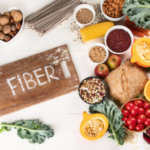
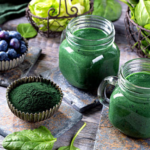
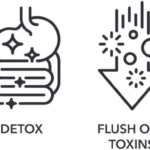




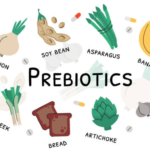
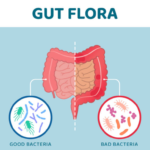
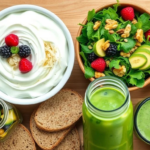














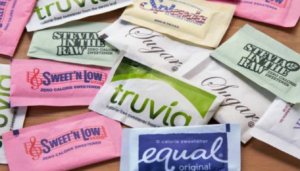




8 comments